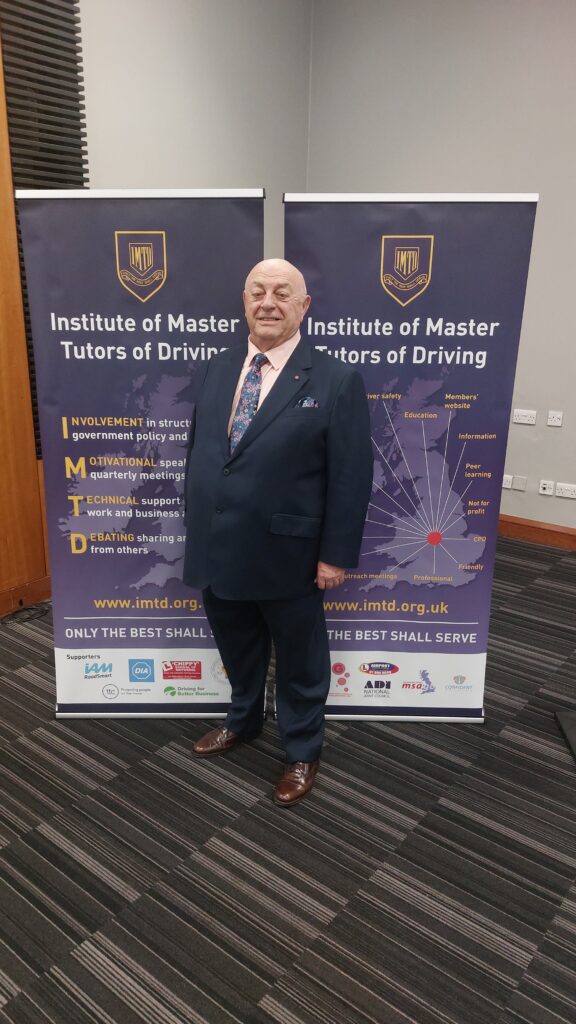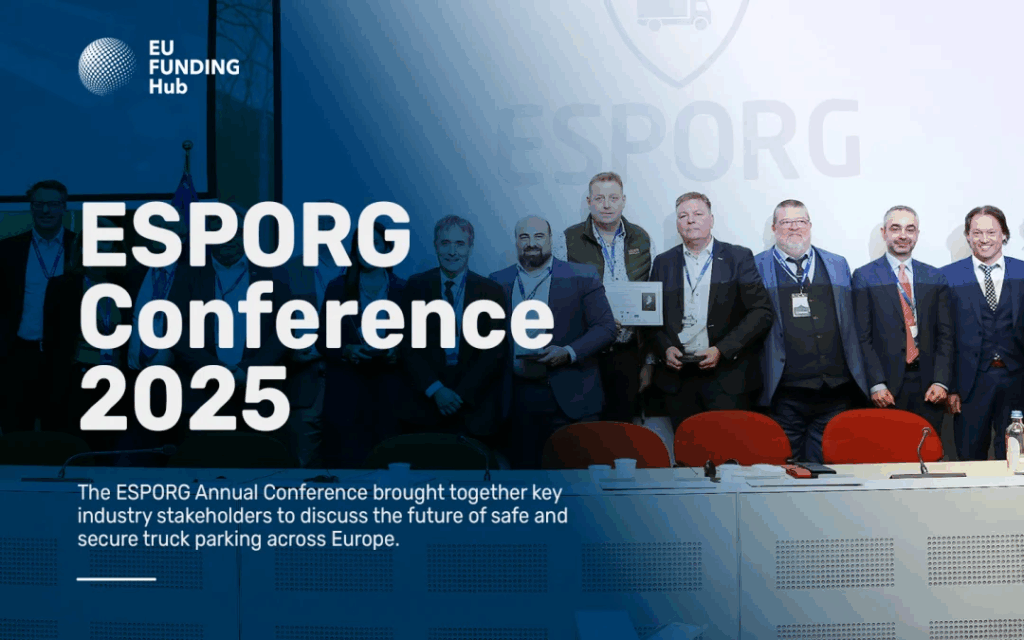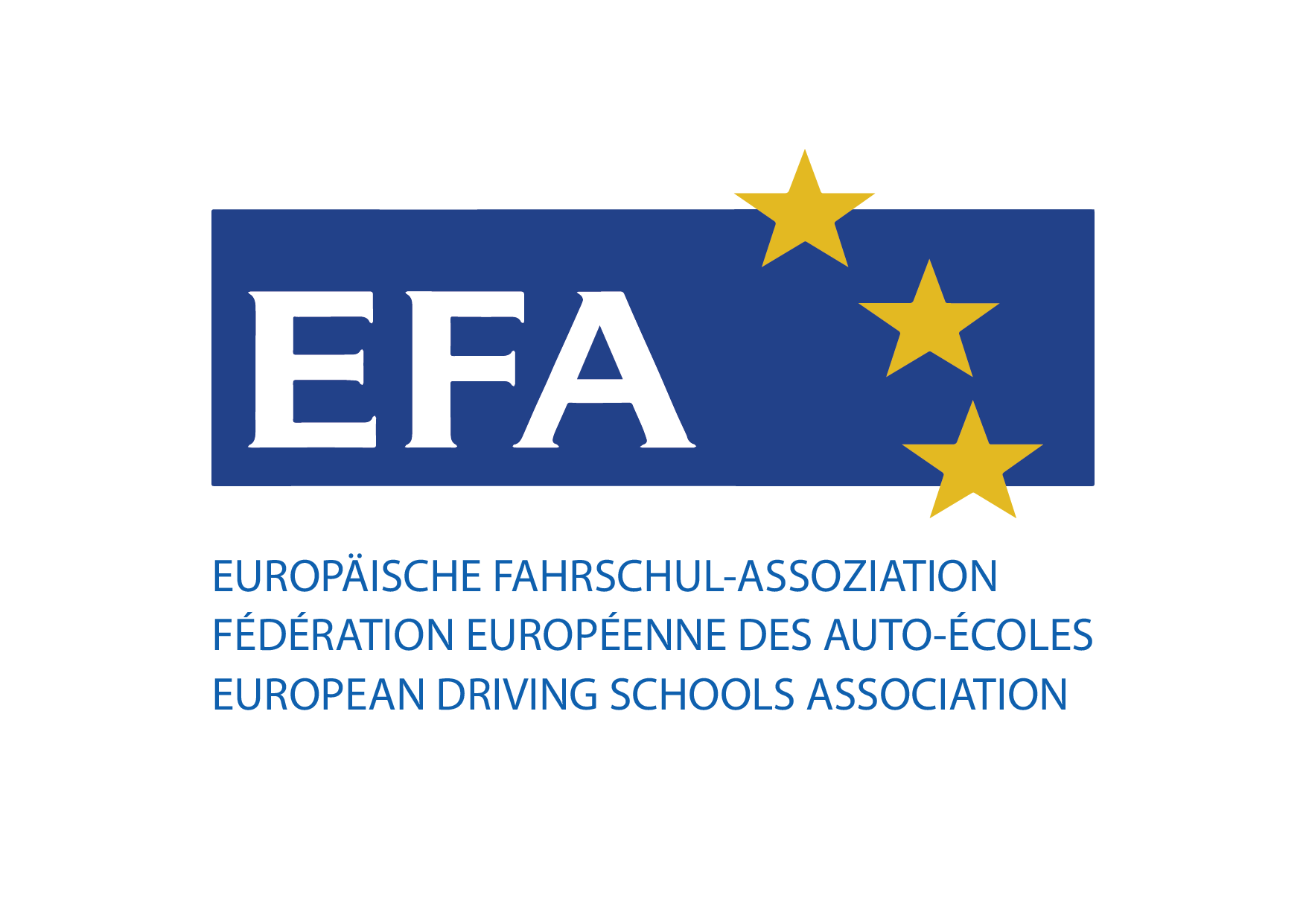EFA Presents New Project on International Standards for Driving Instructors at UN Global Forum
From 15th to 19th September 2025, the United Nations Palace in Geneva (Switzerland) hosted the UN Global Forum for Road Traffic Safety, bringing together international experts and institutions committed to improving road safety worldwide.
On Tuesday 16th, EFA Secretary General Dr. Manuel Picardi took part in the forum, presenting EFA’s new project on international standards for driving instructors. The initiative is based on a globally recognized curricular model and aims to certify instructors’ knowledge through a short training course followed by a theoretical exam.
Dr. Picardi explained: “The content of training courses for becoming a driving instructor should be standardized at a global level. The current international scenario is fragmented. With the new EFA project, instructors already qualified in their home countries will have the opportunity to attend a short theoretical course and pass a theoretical exam to certify their basic knowledge to perform this profession safely. For some, the course will serve as a valuable refresher of what they already know, while for others it will be a chance to expand their competences. Further stages of certification are also foreseen, for instructors who wish to enhance their expertise and distinguish themselves from colleagues through specific tests and practical exams.”
The project has been welcomed with interest at the international level, marking a significant step toward more consistent and higher-quality driver training standards worldwide.

Manuel Picardi at UN Global Forum for Road Traffic Safety

Analysis of the Neurophysiological Correlates of Mental Fatigue in Monotonous and Demanding Driving Conditions
Mental fatigue while driving, both passive (resulting from monotony) and active (caused by cognitive overload), is a critical factor for road safety.
Despite growing interest in monitoring techniques based on neurophysiological signals, current biomarkers are primarily validated for detecting passive mental fatigue in monotonous conditions. The objective of this study is to evaluate the sensitivity of the MDrow index, based on EEG alpha-band activity, previously validated for detecting passive mental fatigue, compared to active mental fatigue, i.e., mental fatigue that occurs in cognitively demanding driving scenarios.
Read the recently published scientific article, which involved some EFA collaborators.
UK Embraces CPR on Test
John Lepine EFA Honorary Member and Past President recently addressed a meeting of the Institute of Master Tutors of Driving held in Coventry England. He reminded members of the introduction of CPR questions to the GB learner driver theory tests and asked that the European Driving Schools Association (EFA) alongside the European Resuscitation Council (ERC) be credited with this success.
The two bodies alongside national bodies like the Motor Schools Association of Great Britain and the Resuscitation Council UK had been at the forefront of the campaign to persuade European governments to include CPR questions and, for the first time, questions about defibrillators to boost cardiac arrest survival.
Currently about forty percent of European countries ask CPR questions and John explained that the number was increasing because of the lobbying carried out by EFA and ERC alongside national bodies.
As part of their efforts the two organisations had together financed and produced an award-winning film promoting CPR to young drivers across Europe. He played members the video and explained that they could learn more about the campaign and view the English language version of the film on the EFA web site.

EFA Honorary Member and Former President Mr. John Lepine
ESPORG and social partners call the EC for more secure truck parkings in the EU, working together on drivers’ wellbeing
The European Secure Parking Organization (ESPORG), together with the International Road Transport Union representing transport operators and the European Transport Workers’ Federation representing professional truck drivers, has addressed a joint letter to European Commission’s Executive Vice-President for Social Rights and Skills, Quality Jobs and Preparedness Roxana Mînzatu, underlining the critical shortage of safe and secure truck parking areas in the EU. Industry and labour have jointly coordinated EU transport sector’s call on the European Commission to Building an EU-wide network of safe and secure truck parking areas. The goal: guarantee drivers’ wellbeing, road safety and the resilience of supply chains.
The joint letter is based on the findings of the European Commission study coordinated by ESPORG, in collaboration with PANTEIA and TIS, which revealed a shortfall of 390,000 safe parking spaces today, projected to rise to 483,000 by 2040 if no urgent action is taken.
Addressing the need to overcome the reluctance from local and regional authorities, ESPORG General Manager Dirk Penasse highlighted the organization’s vision:
“Truck parkings should be created as a home away from home. Lorry drivers and their vehicles should not cause any nuisance to the local community. The fears of the local community should be addressed, and it should be made clear that the expected nuisance will not occur. In this way, we can create a win-win situation for both the local communities and the lorry drivers.”
ESPORG and the transport social partners jointly urged the Commission to ensure consistent EU co-funding, notably through the Connecting Europe Facility (CEF), as part of a long-term European strategy. To translate these priorities into action, the partners propose setting up a European Commission Task Force under the coordination of EVP Minzatu and Transport Commissioner Tzitzikostas’ Cabinets, bringing together ESPORG, as the representative organization of secure parking areas and social partners representing road transport operators and professional drivers, together with experts from DG EMPL and DG MOVE.
More information: www.esporg.eu


Register now: The EU Road Safety Exchange II Final Event
On Thursday 16 October 2025 – 09.00-12.00 CEST there will be the EU Road Safety Exchange II Final Event at the Federal Public Service Mobility and Transport in Brussels.
Three years ago, following a successful pilot project, nineteen EU Member States set out on a shared journey to make Europe’s roads safer. Through the EU-funded Road Safety Exchange II project, transport experts from across the continent worked together to tackle pressing challenges: reducing speed, designing safer infrastructure, improving enforcement and data collection, and protecting pedestrians and cyclists in urban areas.
EU Road Safety Exchange has now grown into one of the EU’s most dynamic platforms for cooperation on road safety.
Read more at:
https://mailchi.mp/etsc/road_safety_exchange_final_event_2025?e=5f52eb2a51

Your Feedback Can Shape the Future of iRAP Training and Accreditation
The iRAP, is committed to continually improving the training and accreditation scheme to empower road safety professionals to help create a safer roads worldwide.
Traying to meet the needs of the road safety community, iRAP launched the iRAP Training and Accreditation Survey for 2025.
This is an opportunity to directly influence the future direction of iRAP training and accreditation programmes. The responses will help iRAP understands what value and what new areas of focus are most important to the road safety community.
Please take a few minutes to share your feedback by completing the survey here:
Complete the Survey or visit the page

Tomorrow. Mobility world congress – Barcelona, from 4th to 6th November
Tomorrow. Mobility World Congress (TWMC), jointly organised by Fira Barcelona and EIT Urban Mobility, is the ultimate event to accelerate sustainable and intelligent urban mobility. Our goal is to act as a global benchmark for the mobility and transport sector, combining an ever-growing leading event with an all-year-round digital platform and an innovation hub attracting the industry’s key players.Join a powerful get-together of international industry executives, government leaders, and global experts shifting the way we move in cities. Mark your calendars for the 2025 edition in Barcelona from 4-6 November, co-celebrated with the Smart City Expo World Congress. Get your pass at https://www.tomorrowmobility.com/

New study shows in-car voice assistants could help prevent drowsy driving crashes
Drowsy driving is a major road safety problem, linked to around one in five crashes. A new study published in Applied Ergonomics suggests that in-car voice assistants could play a role in reducing the risks.
Researchers from the UK and China tested five different ways of using voice assistants during simulated late-night drives: doing nothing, listening passively, listening meaningfully, repeating phrases, and answering questions.
Read more and the study on the ETSC website










